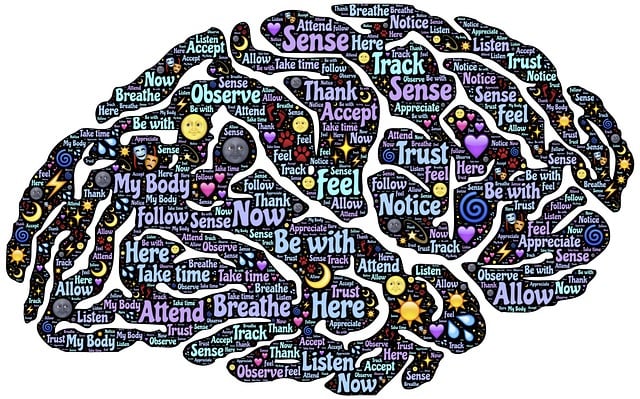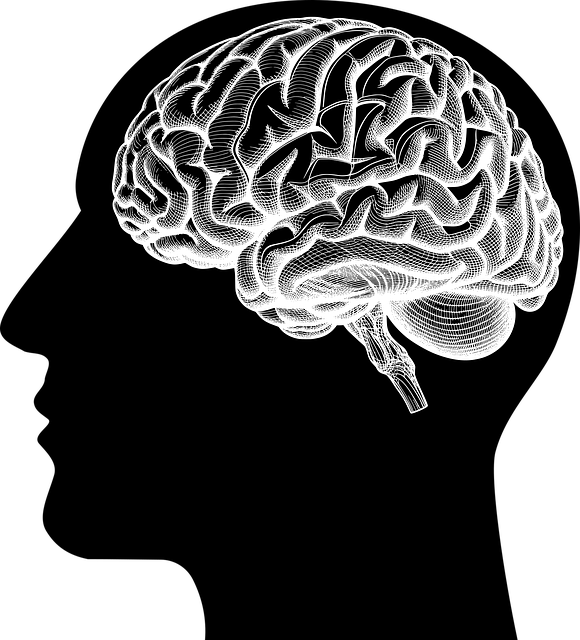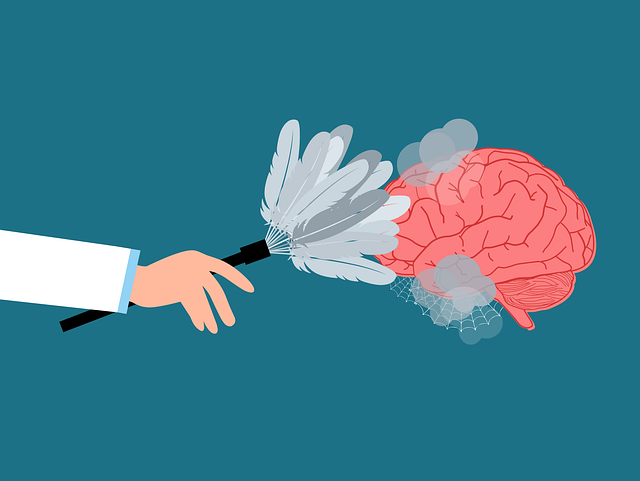TL;DR: Mental health professionals in Denver rely on Denver ADD-ADHD Evaluations and comprehensive risk assessment strategies to manage clients' challenges effectively. By combining personalized treatment plans, self-care routines, and evidence-based practices like Mind Over Matter, therapists foster emotional well-being while mitigating risks of burnout and ethical dilemmas. Continuous learning, supervision, and open dialogue enhance their ability to handle complex cases, including ADD/ADHD diagnoses, ensuring safe and supportive therapy environments.
Mental health professionals regularly navigate complex emotional landscapes, making accurate risk assessment crucial for safe practice. This article delves into the intricacies of risk management, focusing on Denver ADD-ADHD evaluations as a key tool in identifying potential hazards within therapy settings. We explore specific risks unique to these environments and strategies to mitigate them effectively. Additionally, ethical considerations and professional responsibilities are examined, emphasizing the importance of continuous evaluation for optimal patient care, especially when utilizing Denver ADD-ADHD assessments in therapy.
- Understanding Risk Assessment in Mental Health Practice
- The Role of Denver ADD-ADHD Evaluations in Risk Management
- Identifying Risks Specific to Therapy Settings
- Strategies for Mitigating Potential Hazards
- Ethical Considerations and Professional Responsibilities
Understanding Risk Assessment in Mental Health Practice

Risk assessment is a crucial aspect of mental health practice, enabling professionals to navigate complex client needs effectively. It involves a systematic process of identifying, analyzing, and mitigating potential risks associated with providing therapy, especially when dealing with conditions like ADD/ADHD in Denver. By employing comprehensive evaluations, therapists can gain valuable insights into clients’ backgrounds, behaviors, and emotional states, thereby fostering informed decision-making.
This proactive approach allows for the design of tailored mental health education programs and empathy-building strategies. Through careful risk assessment, professionals can facilitate safe spaces for emotional healing processes, ensuring both client and therapist well-being. It’s essential to stay updated with the latest research and best practices in Denver ADD-ADHD evaluations to provide quality care while managing potential risks.
The Role of Denver ADD-ADHD Evaluations in Risk Management

Denver ADD-ADHD Evaluations play a pivotal role in risk management for mental health professionals. These evaluations are instrumental in identifying and mitigating potential risks associated with treating individuals with Attention Deficit Disorder (ADD) or Attention Deficit Hyperactivity Disorder (ADHD). By thoroughly assessing a patient’s symptoms, behavioral patterns, and overall functioning, therapists can develop tailored treatment plans that address specific challenges. This proactive approach ensures that patients receive the most effective therapy, enhancing their mental well-being and promoting positive outcomes.
Moreover, Denver ADD-ADHD Evaluations facilitate self-care routine development for better mental health. Understanding the unique needs of each patient allows therapists to incorporate strategies tailored to managing symptoms of anxiety relief. Public awareness campaigns development can also benefit from these evaluations by providing insights into common misconceptions surrounding ADD/ADHD, fostering a more supportive and informed community.
Identifying Risks Specific to Therapy Settings

In therapy settings, mental health professionals encounter unique risks that demand meticulous consideration. One significant area is the potential for burnout, exacerbated by high caseloads and emotionally demanding cases, especially in environments like Denver ADD-ADHD evaluations. The pressure to deliver effective treatment while maintaining a healthy work-life balance can be challenging. Moreover, therapists often bear the burden of complex ethical dilemmas, such as managing confidential information, dealing with client resistance, or addressing dual relationships.
Specific risk factors include exposure to traumatic stories and sensitive personal details, which may impact professionals’ emotional resilience. Therefore, fostering robust self-care routines, incorporating mindfulness meditation, and adhering to evidence-based practices like Mind Over Matter principles are vital. These strategies not only enhance therapists’ capacity to support clients but also safeguard their well-being in the demanding Denver ADD-ADHD therapy landscape.
Strategies for Mitigating Potential Hazards

Mental health professionals are increasingly recognizing the importance of comprehensive risk assessment to ensure safe and effective practice. Mitigating potential hazards involves a multi-faceted approach tailored to individual needs. One key strategy is implementing robust crisis intervention guidance, empowering practitioners to handle emergent situations with composure and skill. This includes regular training in de-escalation techniques and understanding when and how to access emergency services.
Additionally, fostering emotional regulation skills through self-awareness exercises can help professionals manage their own stress levels and prevent burnout. Encouraging open dialogue about emotions and providing tools for coping mechanisms creates a safe environment for both practitioners and clients. Regular reflection practices and supervision sessions further enhance self-awareness, enabling mental health professionals to recognize early warning signs of potential risks, such as those related to Denver ADD-ADHD evaluations and therapy.
Ethical Considerations and Professional Responsibilities

Mental health professionals operating in Denver ADD-ADHD evaluations and therapy settings have a multifaceted ethical responsibility to their clients and the broader community. They are entrusted with handling sensitive information, understanding complex neurodiversity, and fostering mental wellness through evidence-based practices. As such, these professionals must adhere to strict ethical guidelines that prioritize client confidentiality, informed consent, and cultural sensitivity.
The ability to navigate complex ethical dilemmas is crucial in this domain. Mental health practitioners should be adept at balancing the need for accurate diagnosis with the potential impact on clients’ lives. This involves utilizing empathy building strategies to create a safe space for individuals to disclose their experiences, while also maintaining professional boundaries. Moreover, staying updated with the latest research and best practices ensures that evaluations and therapies are effective and aligned with the evolving Mental Health Awareness landscape.
Mental health professionals must navigate complex risks within their practice, especially in therapy settings. By understanding risk assessment and adopting strategies like the Denver ADD-ADHD evaluations for comprehensive patient assessments, practitioners can effectively identify and mitigate potential hazards. This proactive approach, combined with ethical considerations, ensures a safer environment for both therapists and clients, fostering healthier therapy outcomes. Integrating these practices into mental health care is crucial for enhancing overall treatment effectiveness, particularly in Denver ADD-ADHD therapy settings.














